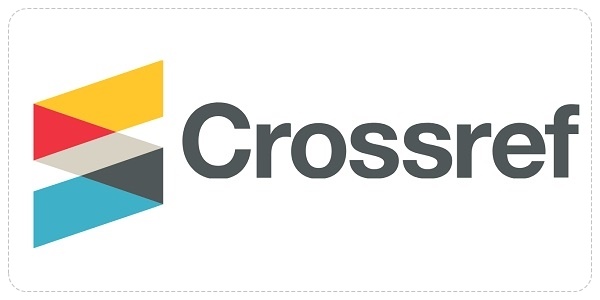Need Analysis of Sundanese Cultural Infusion: Peaceful Education in Early Childhood Education Based
Abstract
Peace education at the early childhood education is very important to be implemented. This study aims to analyze the need for infusing of Sundanese culture-based peace education in early childhood education. This study used a quantitative descriptive method with a survey of teachers and school principals in Soreang, Bandung Regency. The sample technique was the convenience sampling technique. The survey was distributed through a questionnaire on a google form and then distributed to the communication media group to be filled out by teachers and principals of Raudhatul Athfal and Kindergarten who were willing to be respondents. The results showed that the majority of respondents, dominated by teachers, believed that Sundanese culture was effective in teaching the value of peace. Values such as silly asah, silly asih, silly nurturing and traditional games are seen as a powerful medium in educating children about self-awareness and conflict resolution skills. However, there are needs for resources, additional training, and the integration of Sundanese culture in the curriculum to support better implementation of peace education. In conclusion, the infusing of Sundanese culture-based peace education in early childhood education is urgently needed and respondents consider that it needs to be supported by adequate training and resources to ensure its successful implementation.
Keywords
Full Text:
PDFReferences
Alfonso, S. (2014). Peace education in early childhood education. In Factis Pax: Journal of Peace Education and Social Justice, 8(2), 167-188.
Ali, M. (2018). Memahami riset perilaku dan sosial. Bumi Aksara.
Añaños, F. T., Rivera, M., & Amaro, A. (2020). Foundations of culture of peace and peace education as a means of social inclusion. Revista historia de la educación latinoamericana, 22(35), 13-34.
Angelica Ponguta, L. et al. (2018). Early childhood development programs, peacebuilding, and the Sustainable Development Goals: Opportunities for interdisciplinary research and multisectoral partnerships. In: Verma, S., Petersen, A. (eds) Developmental Science and Sustainable Development Goals for Children and Youth. Social Indicators Research Series, vol 74. Springer, Cham. https://doi.org/10.1007/978-3-319-96592-5_4
Anne Tupper, J. (2014). The possibilities for reconciliation through difficult dialogues: Treaty education as peacebuilding. Curriculum Inquiry, 44(4), 469-488. https://doi.org/10.1111/curi.12060
Brantmeier, E. J. (2013). Toward a critical peace education for sustainability. Journal of peace education, 10(3), 242-258. https://doi.org/10.1080/17400201.2013.862920
Buchori, S., Kartadinata, S., Yusuf, S., Fakhri, N., & Adiputra, S. (2021). Developing a framework peace education for primary school teachers in Indonesia. International Journal of Learning, Teaching and Educational Research, 20(8), 227-239. https://doi.org/10.26803/ijlter.20.8.14
Dwinandita, A. (2024). Islamic child parenting practices and muslim family resilience in Southeast Asia: A Systematic Literature Review. Al-Athfal: Jurnal Pendidikan Anak, 10(2), 83-105. https://doi.org/10.14421/al-athfal.2024.102-01
Espelage, D. L., King, M. T., & Colbert, C. L. (2018). Emotional intelligence and school-based bullying prevention and intervention. In Emotional intelligence in education: Integrating research with practice (pp. 217-242). The Springer Series on Human Exceptionality. Springer, Cham. https://doi.org/10.1007/978-3-319-90633-1_9
Fang, Y. (2024). Current situation, problems and countermeasures of intangible cultural heritage inheritance and protection in college education. Academic Journal of Humanities & Social Sciences, 7(8), 227-236. http://dx.doi.org/10.25236/AJHSS.2024.070835
Fitriadi, F., Sinaga, R. M., & Muhammad, R. R. (2024). A literature review on the cultural perspective study in elementary school education in Indonesia. Journal of Innovation in Educational and Cultural Research, 5(1), 51-61. https://doi.org/10.46843/jiecr.v5i1.848
Ilfiandra, I., Nadhirah, N. A., & Suryana, D. (2023, March). Meta-ethnography of local wisdom total peace of urang sunda and its implications to peace pedagogy. In the International Seminar on Delivering Transpersonal Guidance and Counselling Services in School (ISDTGCSS 2022) (pp. 132-149). Atlantis Press. https://doi.org/10.2991/978-2-38476-034-3_17
Jenkins, T. (2022). Comprehensive peace education. In Encyclopedia of Teacher Education (pp. 249-254 Springer, Singapore. https://doi.org/10.1007/978-981-16-8679-5_319
Kong, K., Siraj, I., & Ereky-Stevens, K. (2024). Digital learning in pandemic times: Assessing academic readiness among refugee children in Malaysia. Early Child Development and Care, 1-17. https://doi.org/10.1080/03004430.2024.2337226
KPPPA. (2024). Peta sebaran jumlah kasus kekerasan. Kementerian Pemberdayaan Perempuan dan Perlindungan Anak Republik Indonesia. https://kekerasan.kemenpppa.go.id/ringkasan
Lee, SH. (2024). Shaping a longevity service through visual, tangible, cultural, and social artifacts. In: Rau, PL.P. (eds) Cross-Cultural Design. HCII 2024. Lecture Notes in Computer Science, vol 14699. Springer, Cham. https://doi.org/10.1007/978-3-031-60898-8_4
Ma, Z., & Guo, Y. (2024). Leveraging intangible cultural heritage resources for advancing China’s knowledge-based economy. Journal of the knowledge economy, 15(3), 12946-12978. https://doi.org/10.1007/s13132-023-01643-9
Majed, E., Ruiz, Y., Amireault, S., Reed, J. B., Snyder, F. J., McDonough, M. H., & Blankenship, B. (2022). Examining positive youth development interventions with a physical activity component to address bullying among pre-and early adolescents: a critical review of the literature. The Journal of Early Adolescence, 42(3), 389-413. https://doi.org/10.1177/02724316211036748
Mantau, B. A. K., & Buhungo, R. A. (2024). The culture and tradition of educational practice in Madrasah. Tafkir: Interdisciplinary Journal of Islamic Education, 5(2), 202-216. https://doi.org/10.31538/tijie.v5i2.890
Parkhouse, H., Lu, C. Y., & Massaro, V. R. (2019). Multicultural education professional development: A review of the literature. Review of educational research, 89(3), 416-458. https://doi.org/10.3102/0034654319840359
Pratiwi, H., Sujarwo, Syamsudin, A., & Riwanda, A. (2024). Equipping prospective teachers for culturally and religiously sensitive sexuality education: Curriculum reviews at Islamic universities in Indonesia. Journal of Early Childhood Teacher Education, 1-18. https://doi.org/10.1080/10901027.2024.2421189
Purwaningsih, E., & Ridha, R. (2024). The role of traditional cultural values in character education. Pakistan Journal of Life and Social Sciences, 22(2), 5305-5314. https://doi.org/10.57239/PJLSS-2024-22.2.00396
Purwanti, A., Shaluhiyah, Z., Widjanarko, B., & Natalis, A. (2024). Empowering women: A reflection on protecting against dating violence in the Indonesian context. Qubahan Academic Journal, 4(1), 38-52. https://doi.org/10.58429/qaj.v4n1a245
Rasna, I. W., & Tantra, D. K. (2017). Reconstruction of local wisdom for character education through the Indonesia language learning. Theory and Practice in Language Studies, 7(12), 1229-1235. http://dx.doi.org/10.17507/tpls.0712.09
Reilly, J., & Niens, U. (2017). Global citizenship as education for peacebuilding in a divided society: Structural and contextual constraints on the development of critical dialogic discourse in schools. In Education as Humanisation (pp. 63-86). Routledge.
Rizkiyani, F., & Sari, D. Y. (2022). Pengenalan budaya Sunda pada anak usia dini: Sebuah narrative review. Al-Tsaqafa: Jurnal Ilmiah Peradaban Islam, 19(1), 32-45. https://doi.org/10.15575/al-tsaqafa.v19i1.18292
Sakti, S. A., Endraswara, S., & Rohman, A. (2024). Integrating local cultural values into early childhood education to promote character building. International Journal of Learning, Teaching and Educational Research, 23(7), 84-101. https://doi.org/10.26803/ijlter.23.7.5
Salah, R. (2018). Global citizenship and the role of the United Nations: The promise of the Early Childhood Peace Consortium. New directions for child and adolescent development, 2018(159), 99-105. https://doi.org/10.1002/cad.20231
Saripudin, M. (2023). Ethnopedagogy: Exploring peaceful traditions of Indonesia's Sundanese indigenous communities. In Educating for Peace through Countering Violence (pp. 114-134). Routledge.
Saripudin, M., Ilfiandra, I., & Sunarya, Y. (2022, June). Early childhood peace education curriculum. In International Conference on Education (ICE) (Vol. 1, No. 1, pp. 16-24).
Selasih, N. N., & Sudarsana, I. K. (2018). Education based on ethnopedagogy in maintaining and conserving the local wisdom: A literature study. Jurnal Ilmiah Peuradeun, 6(2), 293-306. https://doi.org/10.26811/peuradeun.v6i2.219
Simangan, D., Sharifi, A., & Kaneko, S. (2021). Positive peace pillars and sustainability dimensions: An analytical framework. International Studies Review, 23(4), 1884-1905. https://doi.org/10.1093/isr/viab054
Sugiyono. (2016). Metode penelitian kuantitatif. Alfabeta.
Supriyanto, A., & Saputra, W. N. E. (2021). Peace guidance: Training for school counsellors at preventing tendention to aggression for students. Proficio, 2(02), 35-43.
Tanyel, S. S., & Kıralp, F. S. Ş. (2021). Tolerance for sustainable peace culture in a divided society: The effect of peace education on tolerance tendency and human values. Social Indicators Research, 156(1), 223-246. https://doi.org/10.1007/s11205-021-02630-w
UNESCO. (2015). Rethinking education: Towards a global common good? UNESCO Publishing.
UNESCO. (2017). Education for sustainable development goals: Learning objectives. UNESCO Publishing.
United Nations. (2015). Transforming our world: The 2030 agenda for sustainable development. United Nations General Assembly
Wahyudin, D. (2018). Peace education curriculum in the context of Education Sustainable Development (ESD). Journal of Sustainable Development Education and Research, 2(1), 21-32. https://doi.org/10.17509/jsder.v2i1.12354
Watkins, T. (2016). The cultural dimension of cognition. Quaternary International, 405, 91-97. https://doi.org/10.1016/j.quaint.2015.02.049
DOI: https://doi.org/10.17509/pdgia.v22i3.75764
Refbacks
INDEXED BY

This work is licensed under a Creative Commons Attribution-ShareAlike 4.0 International License
















